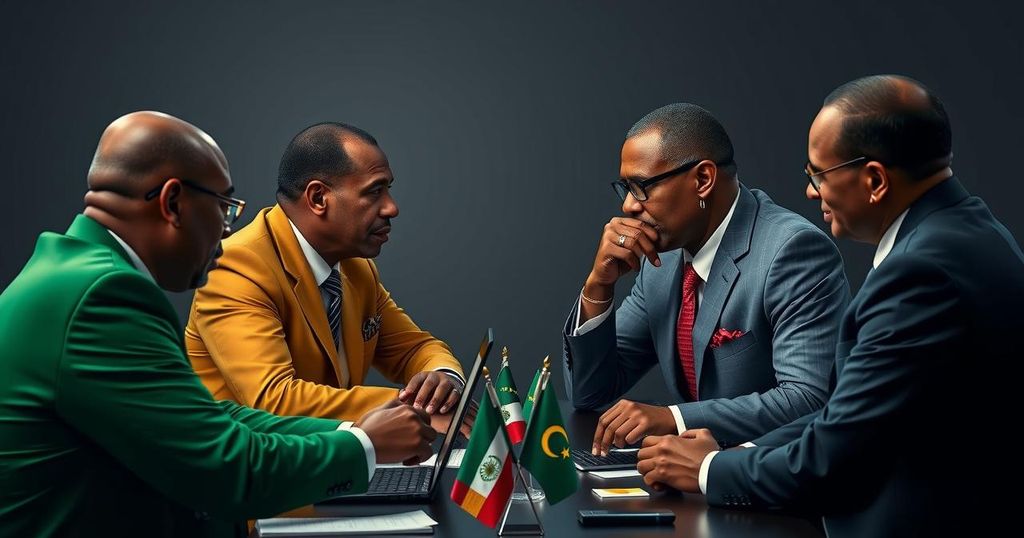Ukrainian President Volodymyr Zelensky has stated that any NATO membership offer should cover all of Ukraine’s internationally recognized territories, rejecting any acknowledgment of Russian claims on occupied areas. His stance seeks to clarify Ukraine’s legal position and aims to enhance NATO support to potentially resolve ongoing conflicts through diplomatic means. Recent military reports indicate Russian advances as Ukraine bolsters its defense.
In a recent broadcast interview, Ukrainian President Volodymyr Zelensky addressed the potential NATO membership for Ukraine. He emphasized that any offer should encompass all territories under international law, rather than just those currently controlled by Kyiv, as doing otherwise would implicitly recognize Russian claims on occupied regions. Zelensky argued that recognizing occupied territories as Russian contradicts Ukraine’s constitutional stance. Therefore, he stresses a holistic approach to NATO invitations as a pathway to bring the ongoing conflict to a resolution and regain lost territories diplomatically.
Zelensky’s comments align with Ukraine’s strategic aspirations for NATO membership, which was deemed an “irreversible” path during the recent NATO summit in Washington. However, the necessity for clearly defined borders poses a significant hurdle, as NATO’s defensive commitments could not be applied without them. Despite the ongoing conflict, the Ukrainian leader insists on consolidating NATO support to stabilize the situation and pave the way for diplomatic solutions to restore Ukraine’s integrity.
As tensions rise along the 1,000-kilometer frontline, recent military reports indicate Russian advances in certain areas. Concurrently, Ukraine’s air force efforts demonstrated defensive capabilities against drone attacks. Amid these developments, President Zelensky announced significant military leadership changes intended to enhance battlefield performance and prepare forces across strategic locations. The heightened military operations underscore the urgent need for effective leadership to withstand Russian offensives, while NATO’s forthcoming foreign ministers’ meeting indicates ongoing international support for Ukraine’s efforts.
The ongoing conflict in Ukraine began in 2022 when Russia launched a military invasion, leading to significant territorial and humanitarian challenges. The situation remains dire, particularly with Ukrainian territories under Russian control complicating prospects for NATO membership. Ukraine has expressed its commitment to reclaiming these territories through diplomatic means while seeking military alliances to strengthen its position. International discussions and support from entities such as NATO remain crucial as Ukraine navigates this complex geopolitical landscape.
President Zelensky’s remarks highlight a critical juncture in Ukraine’s aspirations for NATO membership and the necessity of addressing territorial integrity comprehensively. The insistence on recognizing the entirety of Ukraine as non-negotiable territory underlines the constitutional and strategic imperatives guiding Ukraine’s foreign policy. Meanwhile, consistent international support and leadership adjustments within the Ukrainian military aim to fortify the country against ongoing hostilities while seeking a resolution to the conflict.
Original Source: www.arabnews.com







